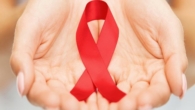
Scientists found out why we became more prone to food allergies
0
Food allergies have increased dramatically in developed countries for more than 30 years. For example, 8% of children in the US experience a potentially fatal immune system reaction to foods such as milk, tree nuts, fish and shellfish. But scientists tried to explain why this is so.
The prevailing theory has been that food allergies arise from the absence of natural pathogens in the modern environment, which in turn makes a part of the immune system that has evolved to deal with such natural threats hypersensitive to certain foods.
< p>In a paper, four immunobiologists at Yale University offer an extended explanation for the rise of food allergies—exaggerated activation of our food quality control system, a complex and highly sophisticated program designed to protect us from eating harmful foods.
They argue that the presence of unnatural substances, including processed foods or environmental chemicals such as dishwashing detergent, in the modern environment, as well as the lack of natural microbial exposure, play a role in the violation of this food quality control program.
Scientists suggest that this theory may lay the foundation for future treatment or prevention of food allergies.
The food quality control program present in the biology of all animals includes sensory Sentinels: if something smells or tastes bad, we don't eat it. And there are guards in the intestines – if we consume toxins, they are detected and expelled. In the latter case, part of the immune system, as well as the parasympathetic part of the nervous system, are also mobilized to help neutralize the threat.
The absence of natural threats, such as parasites, has made this part of the immune system hypersensitive and more likely to respond in general harmless proteins found in certain food groups. This helped explain why people living in rural areas of the world are much less likely to develop food allergies than people living in more urban areas.
However, Medzhitov noted, food allergies continued to rise dramatically. long after the elimination of parasites in developed countries. The Yale team theorized that other environmental factors affected the activity of the natural food quality control system and contributed to increased sensitivity of the immune system to certain food allergens.









Leave a Reply